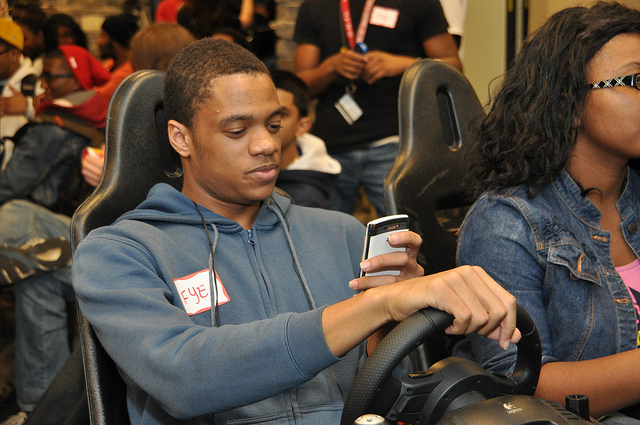Last week, I came across an interesting article in the Minneapolis Star Tribune about college students and their refusal to use email.
The article essentially talked about the trend of college students not using email, professors’ frustrations with said trend, and what it’s meant for students in a variety of situations.
We’ve seen this movie before, right? College and high school kids hate email. They text. They Snapchat. They Twitter. We get it. We know email is passe to that generation. I’ve been beaten over the head with it by now. I’m not here to argue the merits of Millennials fixation with NOT using email.
For me, the article raised a much bigger issue that I thought was worth discussing:
Is college students refusal to use email–and instead focus on texting and social media–killing the next generation of PR writers?
Big issue.
HUGE issue.
And again, not a new issue.
But, I think this is at the crux of it. This millennial and younger generation is the first to essentially grow up using smart phones and social media. There is no benchmark–they ARE the benchmark. So, we’re in unchartered territory here–I get that. But, it seems to me that the reliance on texting (using shorthand) and social (again, shorthand, acronyms, slang) is killing our writers. Just look at a quote from the Strib article:
“I never know what to say in the subject line and how to address the person. Is it mister or professor or comma and return, and do I have to capitalize, and use full sentences? By the time I do all that, I could have an answer by text if I could text them.”
I think my head just exploded.
Now I know this particular quote was chosen for the story because of the outlandish statement made. But, I’m willing to bet that thinking does sum up how some college students think. And that’s a bit concerning.
Yes, you have to use complete sentences in the real world (try writing an email to your CEO once you get a job).
Yes, you have to capitalize. Remember cover letters? The HR industry still uses those. And, they don’t take resumes via text message.
And yes, long-form writing is here to stay. Millennials may change the way we communicate as a society (in many ways, they already have), but there will always be a time and a place for long-form, quality writing, and the thinking that goes along with that. There’s just no way around that fact in my view.
Sick of hearing me rant about this? Let’s hear from a REAL expert–Bill Sledzik, who is hard at work shaping young minds down at Kent St. University. Here’s what Bill had to say when I asked him what this trend will mean for students as they enter the “real world”:
“If you mean the decline of writing skills, it’s a disaster. When students move into a professional arena that demands flawless writing, many can’t perform. That’s why we hammer on the PR students at Kent State that flawless writing is expected. This semester alone I’ve issued 13 F’s on short writing assignments. The message: Improve your writing or find a new major. By the time our PR majors graduate, each of them understands the role of good writing in a successful career – and at least 80% write well. No program bats 1.000. But I work in journalism school where every instructor is anal about writing, so the standard is far higher than the university as a whole. Writing quality of students from other departments is sometimes scary bad. As a result, these weak writers may face a mound of student debt and few job prospects. Are the students entirely to blame? Or should universities awarding these degrees be held accountable, too?”
So, I’ll ask again: Is students over-reliance on social/texting killing them as writers?
Note: Photo courtesy of PennStatenews via FlickR Creative Commons.


0 Comments